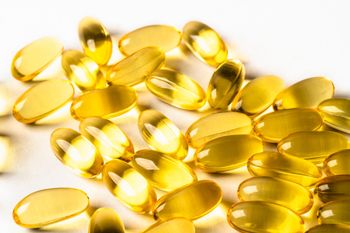
Lutein and Zeaxanthin Isomers Help Reduce Stress in New Study
Researchers at the University of Georgia recently found that lutein and zeaxanthin isomers may help to lower psychological stress levels and reduce serum cortisol.
Lutein and zeaxanthin isomers are powerful antioxidants that specifically deposit in the neural tissues of the eyes and brain. Lutein and zeaxanthin are especially concentrated in the eye’s central retina, where they form the macular pigment, and have been proven critical to visual function. In fact, macular pigment optical density (MPOD) is thought to be a good indicator of the body’s supply of lutein and zeaxanthin and has been shown to be significantly correlated with brain levels of lutein and zeaxanthin.
Researchers at the University of Georgia (Athens, GA) recently published a study that found that macular carotenoids lutein and zeaxanthin isomers may help to lower psychological stress levels and reduce serum cortisol. Chronic stress affects millions of people worldwide and has been linked to a variety of health issues, including high blood pressure, heart disease, depression, and anxiety. These results come part of the LAMA II (Lutein, Vision, and Mental Acuity II) study and are now published in the journal Nutritional Neuroscience.1
In this study, the researchers sought to determine whether there is a link between MPOD and psychological stress level, serum cortisol, and symptoms of suboptimal emotional and physical health. Suboptimal mental conditions such as anxiety and depression are both greatly impacted by stress, indicating that although the two are discrete disorders, they share a common root in psychological stress. While lutein and zeaxanthin isomers have previously proven beneficial to eye health, the researchers hoped that the LAMA II study would show the extent to which lutein and zeaxanthin isomers might relieve psychological stress.
Fifty-nine healthy adults between the ages of 18 and 25 participated in the randomized, double-blind, placebo-controlled LAMA II study in which the study authors measured blood cortisol, psychological stress ratings, behavioral measures of mood, and symptoms of suboptimal health. Measurements were recorded at beginning of the study, at six months, and after one year of daily supplementation with either a placebo or one of two doses of Lutemax 2020, OmniActive Health Technologies Inc.’s (Mumbai, India) proprietary ingredient combining lutein, zeaxanthin, and meso-zeaxanthin. Test subjects were given either 13 mg/day Lutemax 2020 (comprising 10 mg lutein plus 2 mg zeaxanthin) or 27 mg/day Lutemax 2020 (comprising 20 mg lutein plus 4 mg of zeaxanthin).
MPOD increased significantly from baseline to six months, and from six months to one year, in both 13 and 27 mg/day Lutemax 2020 groups. In addition, both groups exhibited significantly lower serum cortisol scores and numbers of suboptimal health symptoms compared to the placebo group, with the higher 27-mg/day group experiencing an even greater increase in MPOD and a sharper decrease in serum cortisol and other suboptimal health symptoms. For the placebo group, no significant changes were observed in any measure over the course of the 12-month study. Overall, supplementation of both doses of Lutemax 2020 for six months significantly improved psychological stress, serum cortisol, and measures of emotional and physical health compared to placebo, which was either maintained or further improved after an additional six months.
“This compelling research demonstrates the expanded benefits of supplementing with lutein and zeaxanthin isomers to help address the huge public health concern surrounding elevated stress and cortisol levels,” said Abhijit Bhattacharya, president of OmniActive Health Technologies, in a press release. While the LAMA II study is an early analysis of the benefits of macular carotenoids for stress and anxiety relief (the study group was fairly homogenous, and none of the subjects were diagnosed with depression or anxiety), Bhattacharya said, “The results of LAMA II serve as a strong foundation on which new macular carotenoids science can be built.”
Last November, LAMA II study researchers reported
References:
- Stringham NT et al. “Supplementation with macular carotenoids reduces psychological stress, serum cortisol, and sub-optimal symptoms of physical and emotional health in young adults.” Nutritional Neuroscience. Published online February 15, 2017.
Newsletter
From ingredient science to consumer trends, get the intel you need to stay competitive in the nutrition space—subscribe now to Nutritional Outlook.





